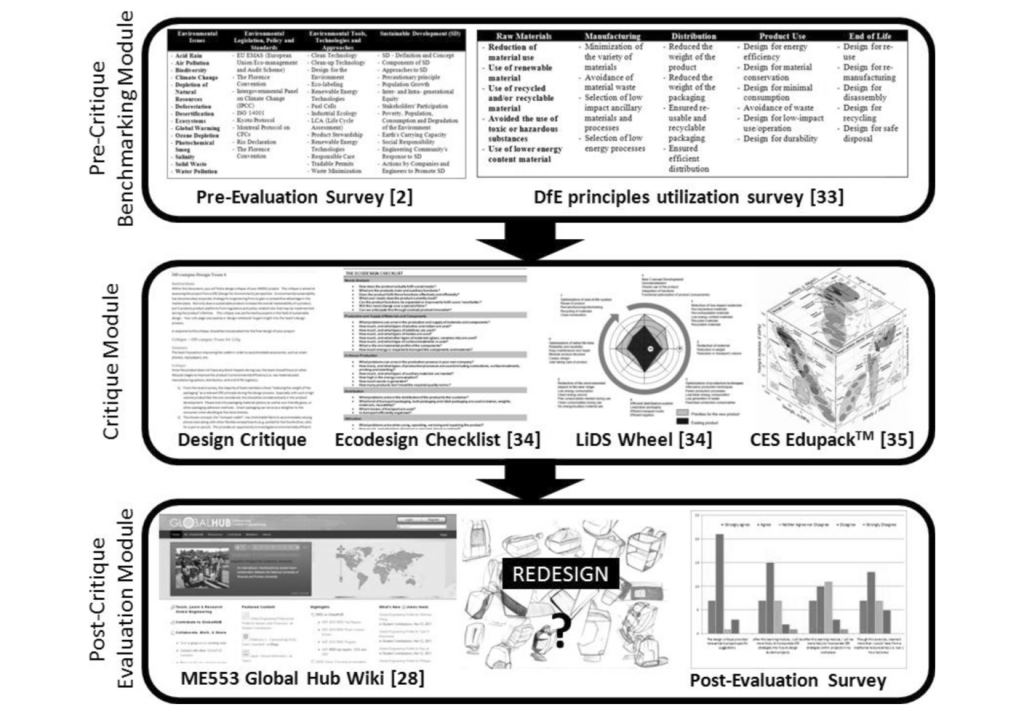Abstract:  Future environmental regulations are creating new employment requirements within traditional engineering organizations. These organizations require recent graduates to have a strong handle on environmental issues related to new product development. Since mechanical engineering curriculum is saturated with courses covering a broad spectrum of engineering fundamentals, there is little room to develop a separate course to teach principles of sustainable product design. This manuscript presents a novel method for teaching Design for Environment ( DfE ) strategies within a mechanical engineering product design course through the use of expert critiques. The results from this study indicate that integration of a critique based module within an existing design project is an effective medium for teaching sustainable product design. Also, receiving feedback in the form of design critiques, breeds innovative design modifications that lower the energy and carbon footprints of the design across multiple lifecycle stages. More importantly, the results indicate that after participating in this teaching module, students are more likely to apply the learned DfE principles within academia and industry.
Teaching Design for Environment through Critique within a Project Based Product Design Course
Authors: William Z. Bernstein, Devarajan Ramanujan, Fu Zhao, Monica F. Cox, and Karthik Ramani
IJEE: Special Issue on Design Centric Engineering Education, Vol. 28, No. 4, pp.1-12.

William Z Bernstein
Dr. William Z. Bernstein is a Mechanical Engineer in the Life Cycle Engineering (LCE) Group of the Systems Integration Division of the Engineering Laboratory (EL) at the National Institute of Standards and Technology (NIST). Dr. Bernstein's research at NIST primarily contributes to two programs: (1) Performance Assurance for Smart Manufacturing Systems and (2) Enabling the Digital Thread for Smart Manufacturing. Prior to joining NIST, Dr. Bernstein was a member of the C-Design Lab at Purdue University. His research at Purdue was focused on establishing frameworks and methods to enable environmentally conscious product redesign activities. Central to this work was the idea of infusing principles from the fields of Information Visualization and Visual Analytics into sustainable design. Dr. Bernstein's current research interests include Sustainable Design, Data-driven Manufacutring, Product Lifecycle Management, Visual Analytics, and Information Visualization.

